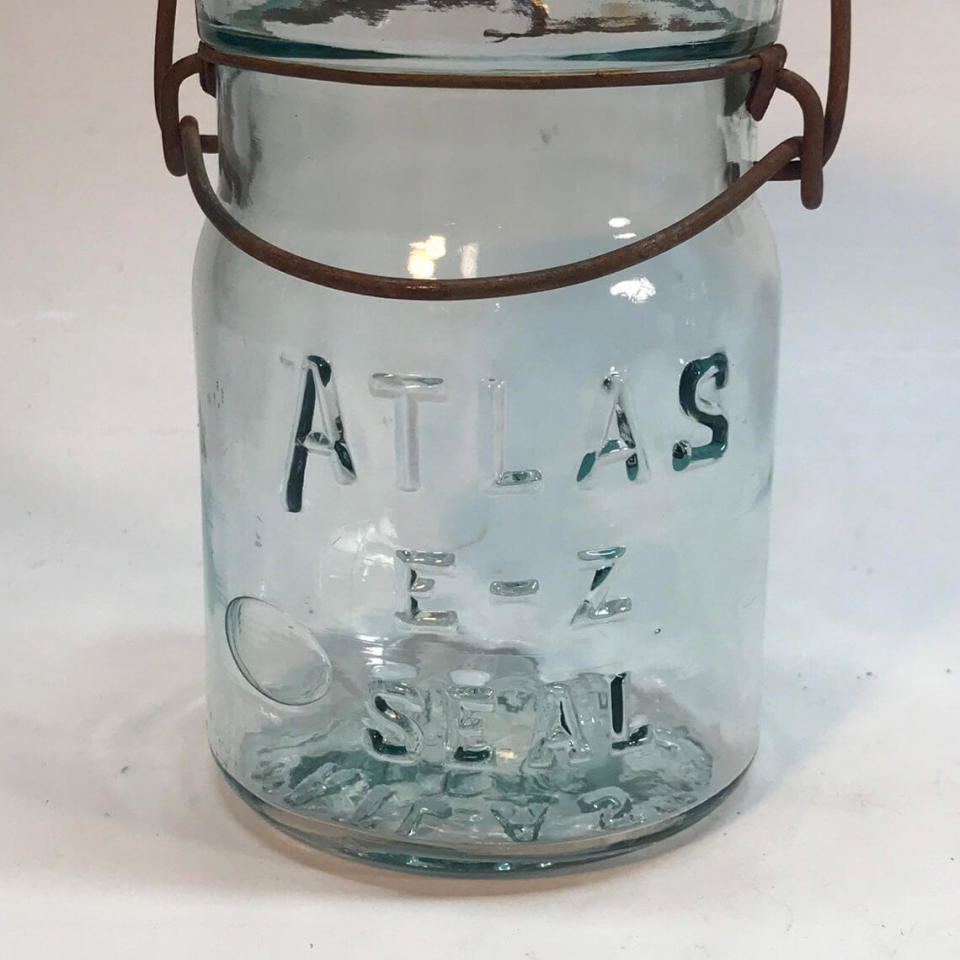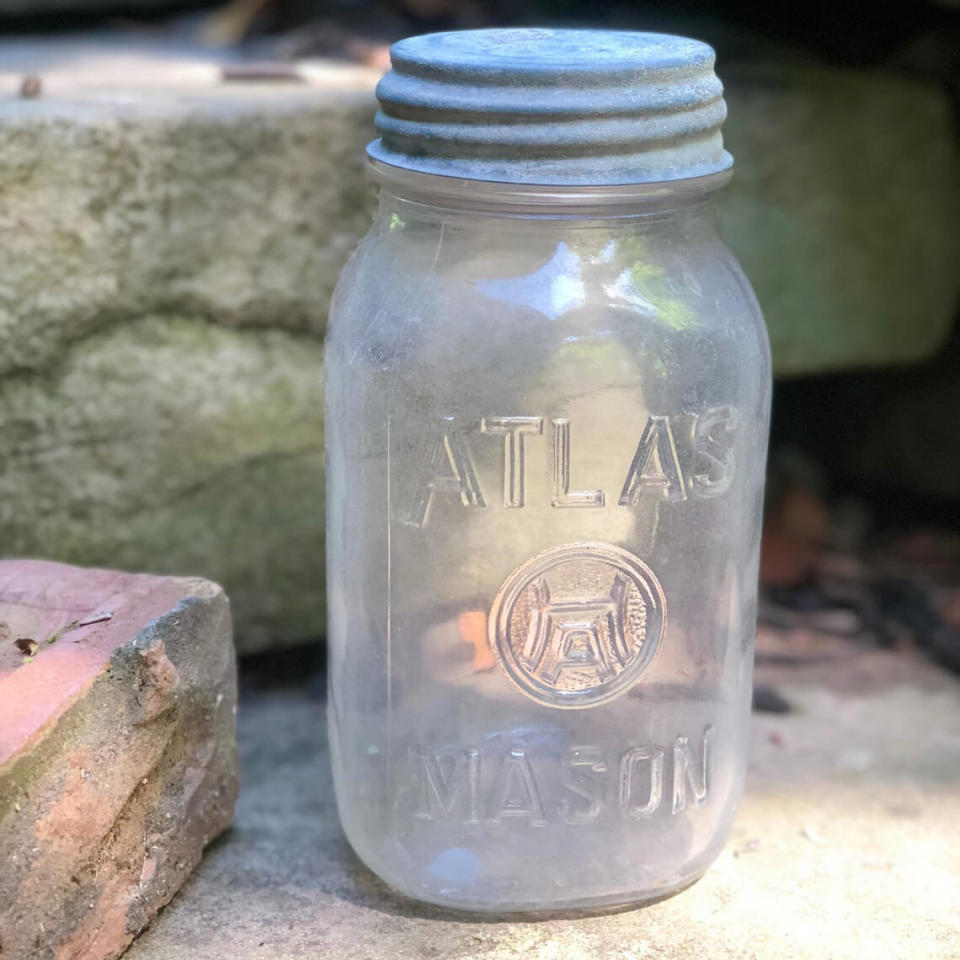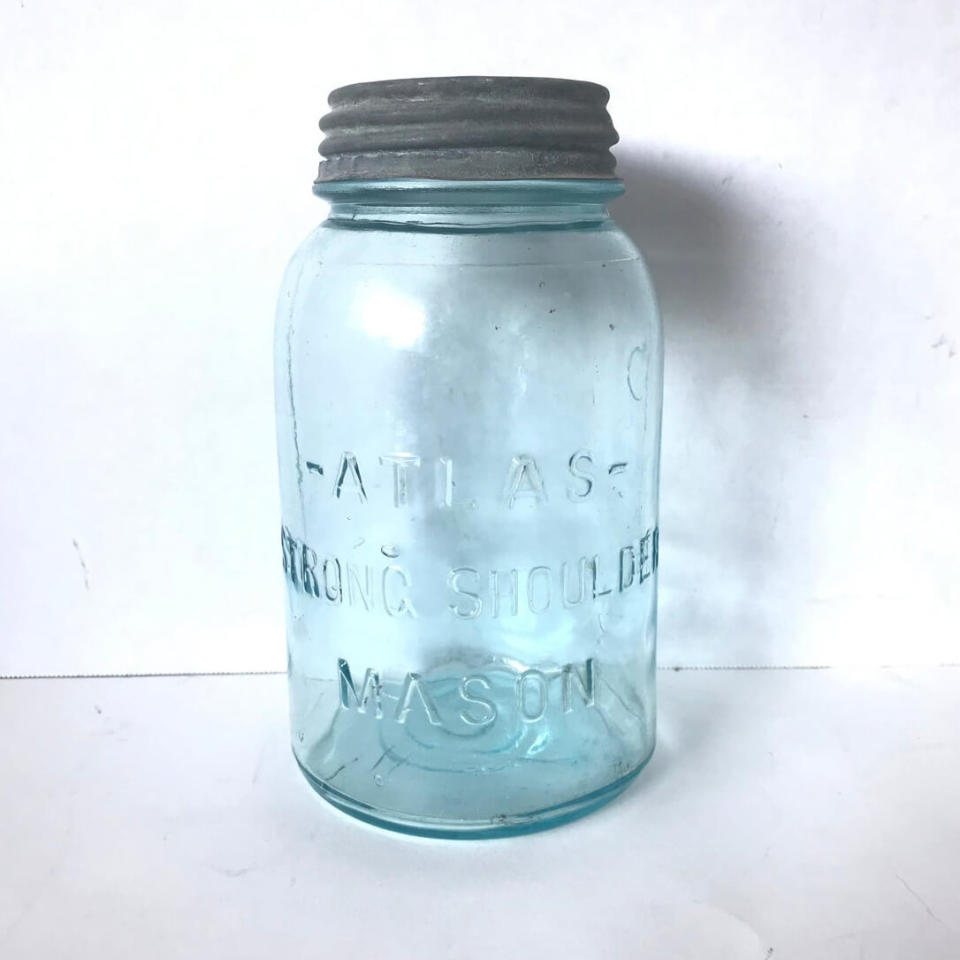Atlas Mason Jar Values & Five Jars to Look For
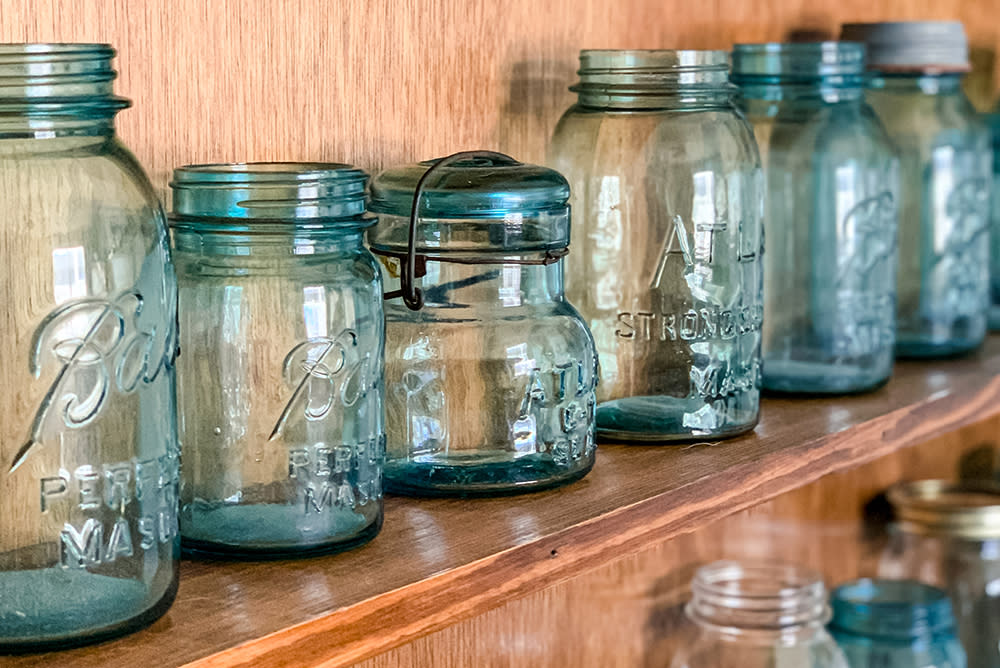
You've probably seen those beautiful old canning jars on antique store shelves (or if you're lucky, maybe in your grandma's kitchen). Today, vintage jars can be valuable, especially certain Atlas Mason jars. Value depends on a few factors, and it's handy to know what they are if you're searching for a treasure.
One important factor in determining the value of Atlas Mason jars is the date. Older jars tend to be more valuable, but identifying an older jar can be tricky. We have some tips and tricks to help, plus a quick reference guide for some of the Atlas Mason jars that are worth the most.
What is an Atlas Mason jar? The glass company Hazel-Atlas, which is also known for making Depression glass, began production around 1902. The Atlas Mason jars were among some of their most important products. These old canning jars come in a variety of different styles and often feature the Atlas name somewhere on the glass.
Quick Reference List of the Most Valuable Atlas Mason Jars
Most Atlas Mason jars sell for under $15, but there are a few examples that can be worth much more. Keep an eye out for high-value styles and color combos, such as these example Atlas Mason jar values.
Jar Style and Color | Value |
|---|---|
Atlas Strong-Shoulder Mason in cornflower blue and amber | $130 |
Atlas Mason's Patent in green | $69 |
Atlas Strong Shoulder Mason in aqua and amber | $65 |
Atlas Mason's Patent in purple | $65 |
Atlas Strong Shoulder Mason in olive green | $59 |
How to Identify an Atlas Mason Jar
You'll see lots of canning jars at antique shops, flea markets, and yard sales, but Atlas Mason jars have distinctive glass markings that can help you identify them. Here's how to check.
Look at the bottom of the jar. It should have a Hazel-Atlas glass mark that shows an A underneath a large capital H.
Examine the writing on the jar itself. It may say "Atlas" or have the Hazel-Atlas glass mark on the side.
Note the color. If it's clear or aqua, it is likely to be a genuine Atlas jar. If it's a different color like purple, it may be a fake. However, it may also be a very rare find.
Related: How to Identify Antique Glass Markings
How to Determine Atlas Mason Jar Values
Whether an Atlas Mason jar is worth money actually depends on a combination of things, so saying one style or one color is valuable doesn't really cover it. If you're wondering whether you might have a treasure, give it a thorough going over.
Examine the Jar's Condition
Jars in excellent condition are worth the most, all other factors being equal. Check for cracks, chips, scratches, and other signs of damage. Manufacturer defects like bubbles in the glass or a wavy texture won't detract from the value, and they can actually indicate an older jar.
Check the Style of the Jar
Atlas jars came in many different styles, but a few are especially valuable. Look for the following:
Atlas E-Z Seal - This jar style is round, featuring a bail and integrated glass lid. It is stamped with the E-Z Seal name and comes in pint, half-pint, quart, and half-gallon sizes. The earliest E-Z Seal jars are from 1910 and are amber glass; they are among the most valuable. A clear vintage one, on the other hand, is worth about $20.
Atlas Trademark Mason - This Mason jar features the H-over-A Atlas trademark and comes in pint, half-pint, quart, and half-gallon sizes. Early examples can be very valuable.
Atlas Mason's Patent - The Patent Mason by Atlas is rarer than many other styles, so it can sometimes be valuable. You can identify it by the words "Atlas Mason's Patent" embossed on the glass. In rarer colors, they can be worth a lot. A green glass example sold for about $68, and a purple one was worth $65.
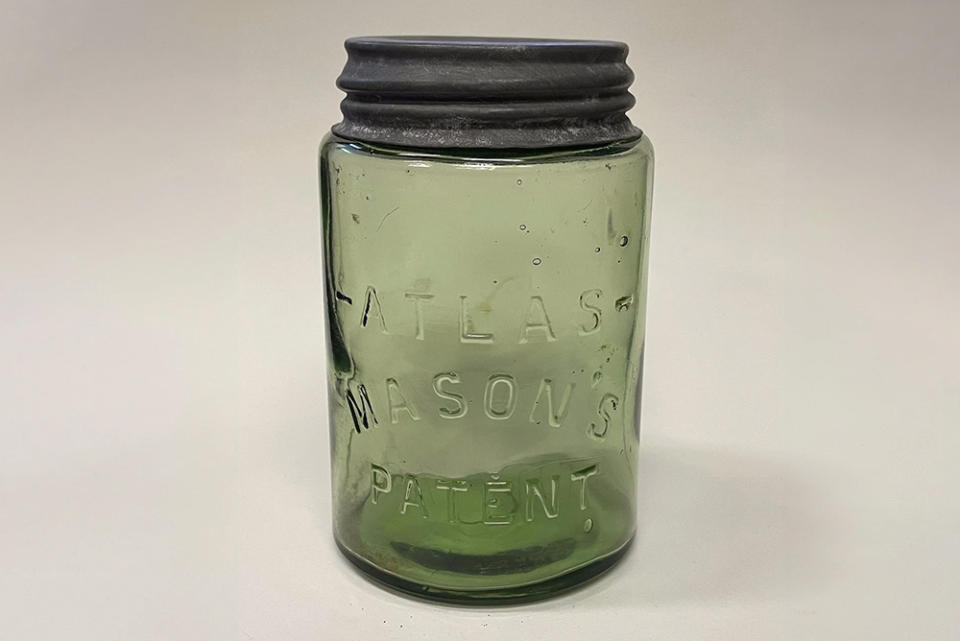
Atlas Special Mason - The Atlas Special Mason is easy to identify because it says "Atlas Special" right on it. These came in lots of different sizes, and some can be rare. An Atlas Special Mason jar's value can be anything from a few dollars to over $50. A squat glass Atlas Special Mason in beautiful condition sold for about $31.
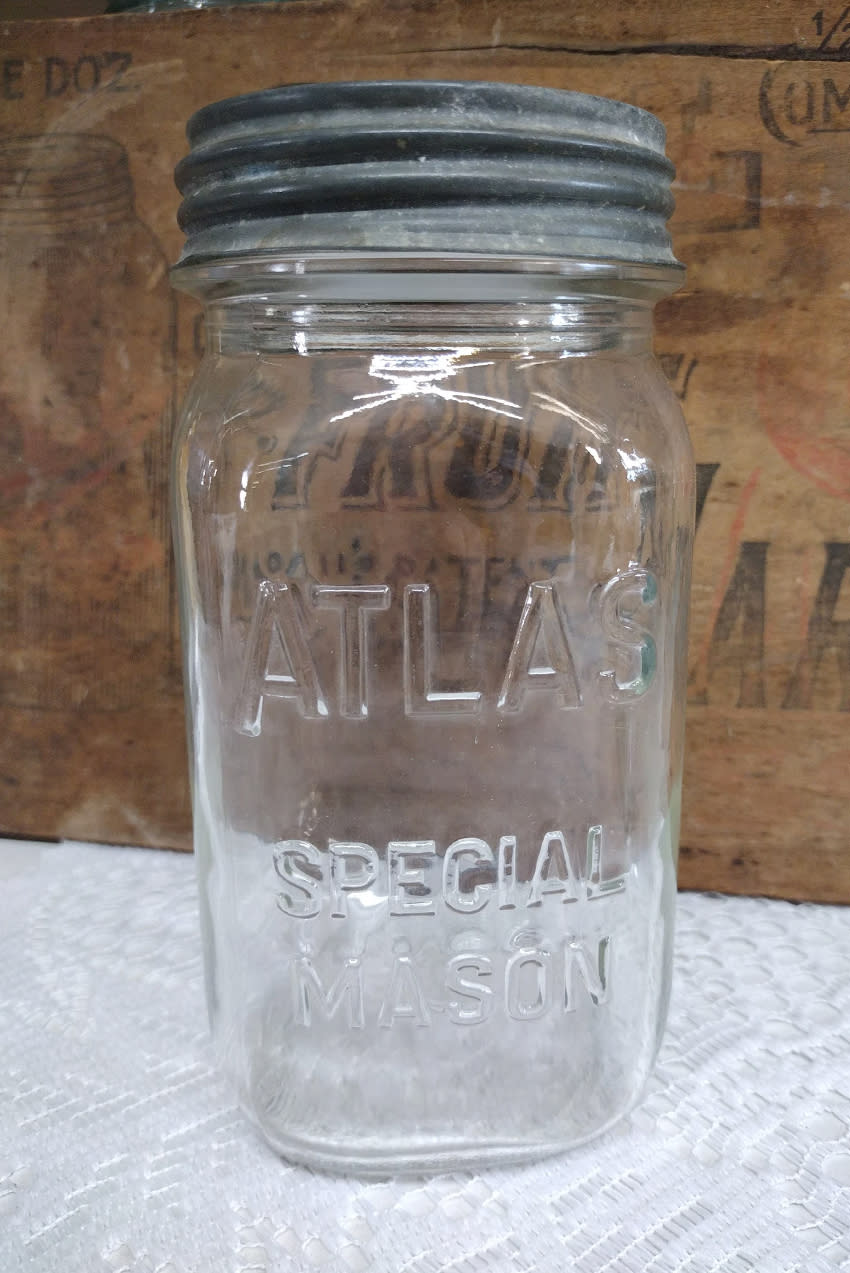
Atlas Strong Shoulder Mason - A "strong shoulder" is a ledge above the rounded "shoulder" of the jar but below the threads for screwing on the top. This shape can make an Atlas jar more valuable. For example, an Atlas strong shoulder Mason jar in a really rare cornflower blue and ambe-swirled glass sold for about $130. You'll find these in many sizes.
Consider the Color
Color is also an important factor. In general, exotic shades like amber, purple, and green will fetch more. However, you must be very cautious buying these, as they are the most likely to be faked. Still, if you can find one, it can be worth a lot. A rare olive green Strong Shoulder Mason sold for about $59.
Combined colors or swirls of two colors can be super valuable, too. For instance, an Atlas Strong Shoulder Mason in aqua and amber-swirled glass sold for about $65.
You can get a sense of your jar's value by comparing it to others that have recently sold. Avoid comparing your jar to those currently listed for sale, since sellers can ask any price they like. The actual sales price is a way more accurate measure.
Think About the Age
Dating an Atlas Mason jar is important, too, because older jars can be worth more. Newer jars were made by other companies after Hazel-Atlas stopped manufacturing them in the 1960s, but the oldest jars are among the most valuable.
While many Atlas Mason jars have dates marked on them, it's better not to rely on these. The same molds were used for multiple years, and it's very common to find reproduction jars with older dates on them. However, there are a number of ways to tell how old your Atlas Mason jar might be.
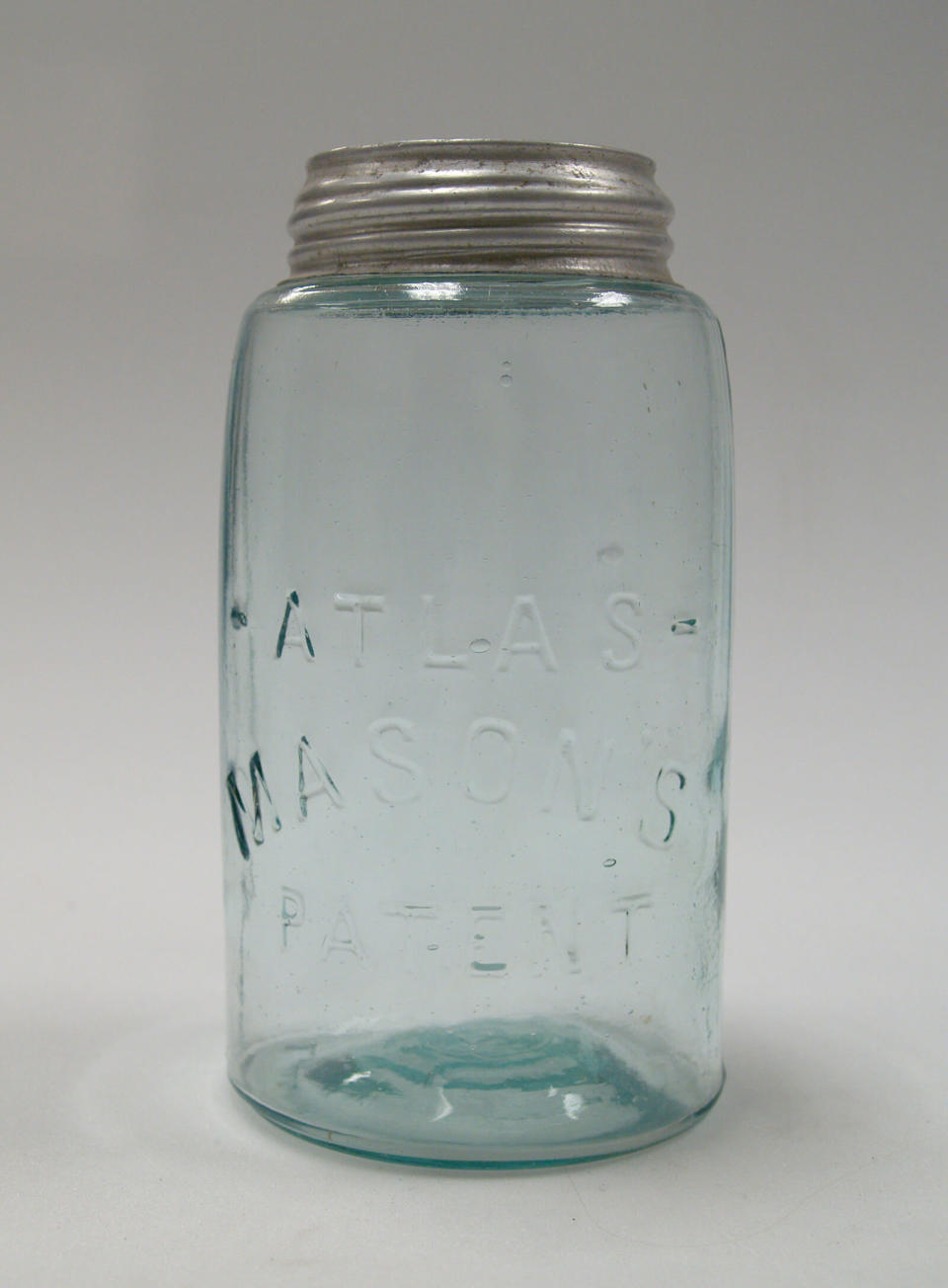
Look for mold seams. Examine the jar to see if it has lines or mold seams from its construction. Most Atlas jars will have these seams. If the jar doesn't have seams, it may be a very old example. Jars made before 1915 were hand-finished and did not have visible seams.
Check the texture of the glass. Take a moment to lightly run your fingers over the surface of the jar. You may notice nicks and chips, but pay special attention to waves or ripples in the glass. If you find these, you may have a very old Atlas jar. Newer examples are more uniform in texture.
Note the name. Does the jar say "Atlas"? Or does it say "Atlas Mason"? Older jars made by the Hazel-Atlas company will say "Atlas," while newer models made after the company was acquired may say "Atlas Mason."
As with any important antique, if you suspect you have a jar that's worth money, it's wise to have it professionally appraised.
Not the Only Canning Jar Company
While they produced many beautiful old jars, Hazel-Atlas wasn't the only canning jar company. There are many beautiful antique canning jars to collect, including Ball, Kerr, and others. Learn about the value of old canning jars to give yourself a working knowledge of what to look for when you visit antique stores, garage sales, and flea markets.
